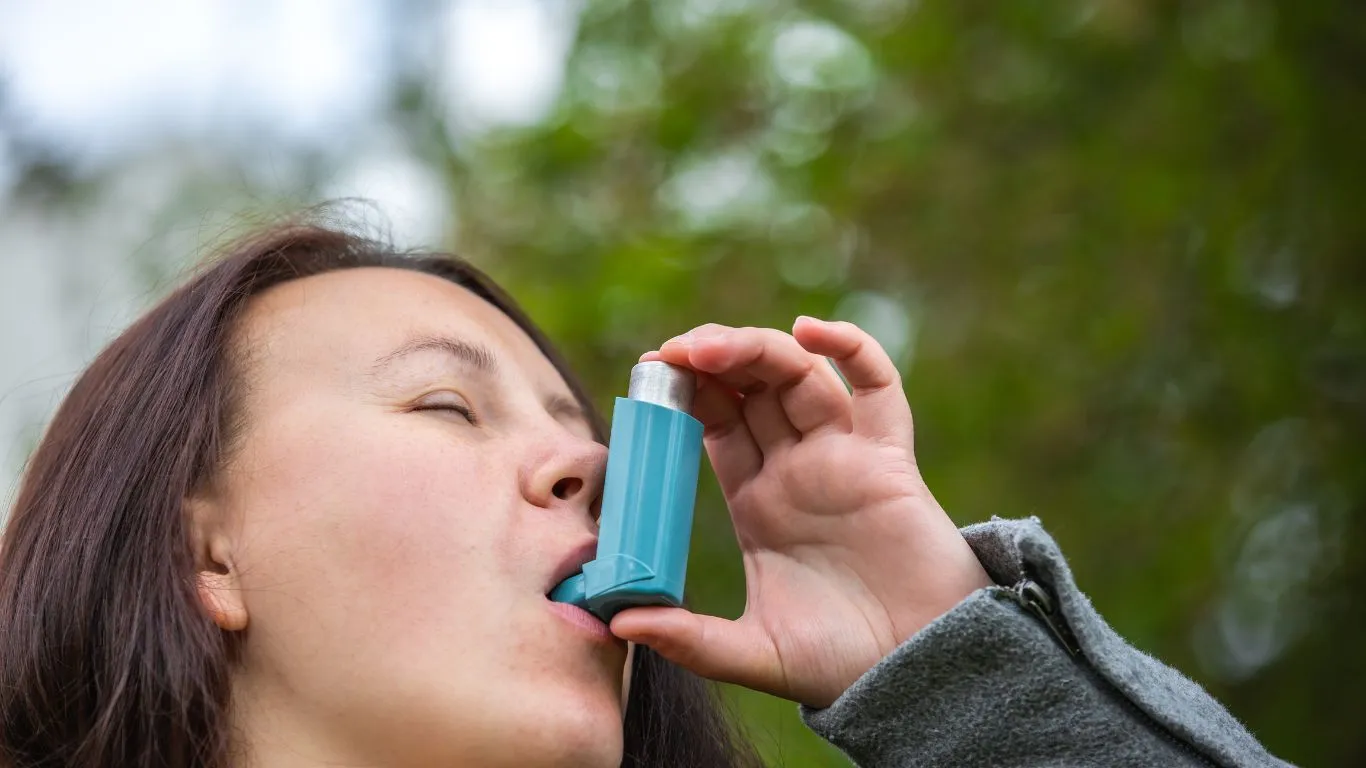Can Childhood Asthma Go Away? Find Out if Your Child’s Asthma Will Disappear
Can Childhood Asthma Go Away? 🤔
Ah, childhood asthma. If you’re a parent, you probably know the drill—seeing your little one struggle to breathe, cough uncontrollably, or have a hard time keeping up with the other kids on the playground. It’s honestly one of those things that makes you feel helpless. And, of course, as your child grows, you start wondering, “Is this going to be something they outgrow? Or is asthma something they’ll deal with forever?” Let’s chat about it.

So, What’s the Deal with Childhood Asthma? 🌬️
Before we dive into the question of whether asthma can go away, let’s break down what asthma actually is. Basically, asthma is a condition where the airways in the lungs get inflamed, making it tough for air to pass through. This can lead to wheezing, coughing, tightness in the chest, and all sorts of other symptoms that make it hard to breathe, especially during an asthma attack. For kids, it can be especially tough because they’re still growing, and their bodies might not be as resilient when it comes to managing it.

Can Childhood Asthma Actually Go Away? 👶
I get it. As a parent, you’re probably hoping for a magic cure, but the reality is… it’s kind of complicated. Some kids with asthma see it improve or even disappear as they get older. But others? Not so much. So, let’s break it down a bit more:
1. Age and Growth Matter 🧒
Here’s the thing: as kids grow, their lungs get bigger and stronger. So, some children might see their asthma symptoms lessen as they get older. I’ve seen it firsthand with friends—one of them had a daughter who couldn’t go anywhere without her inhaler when she was younger, but by the time she hit her teens, asthma was barely an issue. It’s like her body just adjusted and grew out of it. But that doesn’t happen for everyone, so don’t expect it to be the same for your kid.
2. Allergic vs. Non-Allergic Asthma 🌻
Another thing to keep in mind is whether your child’s asthma is triggered by allergies or not. If your kid has allergic asthma (meaning it’s triggered by things like pollen, dust, or pet dander), it might stick around longer. These allergens don’t just magically disappear, so your child could still have to deal with symptoms, especially in spring when pollen counts are high.
3. Lifestyle & Environment Play a Role 🌍
I’ve also seen how a change in environment can make a huge difference. One family I know moved from a city with a lot of air pollution to the countryside, and the kid’s asthma dramatically improved. It’s not a guaranteed fix, but environmental factors like pollution or exposure to certain allergens can have a big impact on how asthma behaves. A healthier lifestyle, like better nutrition and regular exercise, can also help improve things.

What Could Go Wrong with Managing Asthma? 🚑
Even though asthma can improve for some, there are a few common bumps in the road that can make it harder to manage. Let’s talk about a few issues that often come up:
1. Forgetting Medication 💊
Okay, let’s be real for a second—kids don’t always want to follow through on their treatment plan. Sometimes, they don’t like the taste of their inhaler or just forget to take it. But skipping medication or not using it properly can lead to flare-ups that could’ve been avoided.
Pro Tip: If your child is old enough, get them involved in their asthma care. Make it a habit, like brushing their teeth—something they can do without needing reminders. You can also make a fun little chart to track their meds and make it feel less like a chore.
2. Triggers You Can’t Always Control 🌾
Allergens, cold air, dust—there are plenty of things that can set off an asthma attack. And let’s face it, you can’t always avoid them. Especially if you live in a place with a lot of pollen or if your kid is allergic to pets.
Pro Tip: While you can’t control the weather, you can control what happens inside your home. Air purifiers, vacuuming regularly, and even keeping pets out of certain rooms can help. It’s the little things that can add up!
3. Not Keeping Up with Monitoring 📉
Asthma can change. One day, your kid might be fine, and the next, they’re having trouble breathing. So, it’s important to keep an eye on their symptoms and get regular check-ups with the doctor. Sometimes, doctors will adjust medications or treatments based on how things are going.
Pro Tip: Keep a journal of symptoms. If your kid’s symptoms change or get worse, you’ll have something concrete to discuss with the doctor.
Success Stories—It’s Not All Bad! 💡
Okay, enough of the doom and gloom. Here are a couple of success stories I’ve heard about asthma improving over time:
Case Study 1: Emma’s Asthma Story 🌈
Emma’s story is a pretty classic one. She was diagnosed with asthma at age 2, and for the longest time, it felt like she could never escape her inhaler. But as she got older, her symptoms started to ease up. By age 10, she was barely using her inhaler, and asthma wasn’t a major issue anymore. It’s like her body just grew out of it.
Case Study 2: Lucas’s Trigger-Free Life 💪
Lucas had a rough start with asthma, mainly triggered by his cat allergy. No matter how much medication he took, the asthma kept coming back. But after his family moved to a house with no pets and fewer allergens, his asthma cleared up. By 12, he was pretty much asthma-free, and the only time he needed an inhaler was during allergy season.
Key Takeaways / Summary 📝
- Asthma doesn’t necessarily go away for everyone, but some kids do grow out of it as they get older.
- Factors like genetics, allergies, and lifestyle can play a big part in whether asthma improves or sticks around.
- Consistent medication, avoiding triggers, and regular check-ups are key for managing asthma in kids.
- It’s a good idea to keep track of symptoms and work closely with a doctor to adjust treatments when needed.
FAQs 🤷♀️
- Can asthma go away without treatment? Not really. Asthma can improve over time, but treatment is usually needed to manage the symptoms and prevent flare-ups.
- When do kids usually grow out of asthma? It varies. Some kids outgrow it in their teens, while others may deal with it into adulthood.
- How can I help my child manage asthma? Stick to their treatment plan, avoid known triggers, and keep an eye on symptoms. A healthy lifestyle helps, too!
- Can asthma cause permanent lung damage? If asthma is not controlled, it can cause long-term damage to the lungs, so it’s important to manage it properly.
Disclaimer ⚖️
This article is meant to inform, not to replace professional medical advice. Always talk to your child’s doctor for personalized guidance.
Call to Action 🔔
If you’re feeling unsure or need more info about managing your child’s asthma, don’t hesitate to chat with their doctor. Getting the right treatment and staying proactive can make all the difference!

Bianca Nala is a compassionate Nurse Practitioner with a strong background in primary and respiratory care. As a health writer for Healthusias.com, she combines her clinical expertise with a talent for clear, relatable storytelling to help readers better understand their health. Bianca focuses on topics like asthma, COPD, chronic cough, and overall lung health, aiming to simplify complex medical topics without losing accuracy. Whether she’s treating patients or writing articles, Bianca is driven by a single goal: making quality healthcare knowledge accessible to everyone.







